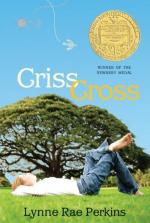
|
| Name: _________________________ | Period: ___________________ |
This test consists of 5 short answer questions, 10 short essay questions, and 1 (of 3) essay topics.
Short Answer Questions
1. What has brought the worms out on the sidewalk?
2. Where does the necklace end up next after leaving Russel's pocket and being picked up?
3. What has Hector decided to do to enhance his image as a musician?
4. Where do Peter and his parents live?
5. What do Debbie and Peter hope for as they are working on Mrs. Bruning's house?
Short Essay Questions
1. With what is Lenny helping his father in Chapter 16, and what is Debbie doing when she overhears them?
2. What book is Debbie reading in Chapter 22 and what does she think about the book and her life compared to the life of the protagonist in the book?
3. Why are Phil, Debbie, Lenny and Hector sitting on a curb, what are they doing and what are they talking about?
4. What do Peter and Debbie decide to do after Mrs. Bruning is taken to the hospital?
5. What is Mrs. Bruning's response about Debbie, and what does Mrs. Bruning give Debbie?
6. What are Debbie and Patty doing while looking at the yearbook and what is Debbie thinking about when she looks at her own picture in the yearbook?
7. How do Debbie and Peter handle the emergency with Mrs. Bruning?
8. What does Debbie hear her mother telling a friend about Debbie's upcoming summer?
9. How is Mrs. Bruning when she comes home from the hospital and to what does she agree with Peter's parents?
10. Who is at the Tastee Freez when the guitar lesson group arrives there and how does Hector feel about the class going to the Tastee Freez?
Essay Topics
Write an essay for ONE of the following topics:
Essay Topic 1
Discuss one of the following:
1. Thoroughly analyze how the setting informs the plot in "Criss Cross".
2. Trace and analyze one major theme of "Criss Cross". How is the theme represented by symbolism? By the characters' behaviors? By the action?
3. Trace and analyze two secondary themes of "Criss Cross". How are the themes represented by symbolism? By the characters' behaviors? By the action?
Essay Topic 2
Choose one of the following to discuss:
1. Choose two significant symbols and trace and analyze their appearance in "Criss Cross". Are these universal symbols? Would they be understood in any culture? Are there other symbols that would portray the same idea? What are they? Why do you think Perkins chooses the symbols he does?
2. Choose two important metaphors and trace and analyze their appearance in the novel. Are these universal metaphors? Would they be understood in any culture? Are there other metaphors that would portray the same idea? What are they? Why do you think Perkins chooses the metaphors she does?
3. Discuss Perkins's use (or lack ) of literary device (such as foreshadowing, cliffhangers, deux ex machina, etc.), and how they add or detract from the story. Does Perkins use too many or too little literary techniques? State which of the five major elements of fiction the literary device is related to (style, character, plot, setting, theme).
Essay Topic 3
There are a number of interesting questions raised by "Criss Cross". Questions that Perkins most likely want readers to consider and think through carefully. Discuss the following:
1. What does the term "author agenda" mean?
2. Name one idea/concept you think may have been a part of the Perkins' agenda. Analyze that idea throughout the book and discuss Perkins' probable agenda concerning that idea.
2. Do you think writers who have an agenda for writing should point it out in a preface?
3. How often do you think fiction is written with a clear agenda in mind by the author?
4. Research the life of Perkins and see if/where his life may have influenced his writing.
|
This section contains 1,146 words (approx. 4 pages at 300 words per page) |

|




